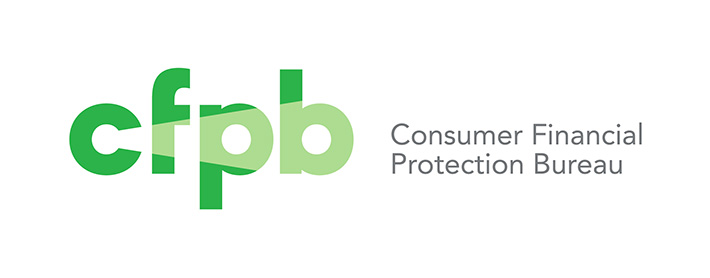Articles by deBanked Staff
New Bill Would Give CFPB Regulatory Authority Over Small Business Lenders
April 1, 2022 When Congress passed a law in 2010 that gave the newly created Consumer Financial Protection Bureau a mandate to collect small business loan data, industry observers wondered just how broadly the agency would interpret that authority.
When Congress passed a law in 2010 that gave the newly created Consumer Financial Protection Bureau a mandate to collect small business loan data, industry observers wondered just how broadly the agency would interpret that authority.
At least one Congresswoman, however, feels that the statute as written is limited. That’s because Rep. Nydia M. Velázquez introduced a bill on Friday that would explicitly give the CFPB the power it lacks to oversee small business lending altogether.
H.R. 7351, the Promoting Fair Lending to Small Businesses Act, is designed to give the CFPB supervisory authority of “nondepository persons offering or making small business loans.”
“This bill will play an important role in applying the same standards for all lenders who make loans for small businesses, and especially those that have been historically underserved by lenders such as minority- and women-owned businesses,” said Velázquez.
It would be no surprise if a small business lender had not been previously aware of the CFPB’s pre-existing data-collection powers. That’s because the law that was passed twelve years ago, still has not been completely rolled out.
Utah Passes Commercial Financing Disclosure Law
March 28, 2022 The Governor of Utah signed SB183 last Thursday, a law that will require commercial financing providers to formally register with the State as well as provide uniform disclosures on the transactions they conduct.
The Governor of Utah signed SB183 last Thursday, a law that will require commercial financing providers to formally register with the State as well as provide uniform disclosures on the transactions they conduct.
Beginning January 1, 2023, covered parties will require State approval to conduct business with Utah customers. Following that, the disclosures listed below will be required in the contracts:
- Total amount of funds provided to the business
- Total amount of funds disbursed
- The total amount to be paid
- The total dollar cost of the transaction
- The manner, amount, and frequency of each payment OR the estimated amount of the initial payment
- A statement of costs or discounts associated with prepayment
- The broker’s commission amount
- Explanation of payment methodology and hypothetical circumstances that could cause it to vary
The full text can be read here. deBanked first reported on this bill on February 9th.
Utah follows Virginia, New York, and California who have all passed their own versions of a commercial financing disclosure law. Maryland is the most likely state to pass one next.
Update on Connecticut Commercial Financing Disclosure Bill
March 28, 2022The Connecticut commercial financing disclosure bill first reported by deBanked on March 3rd is still in play. SB272, written similarly to the first draft of the recently passed New York legislation, has been met with both support and opposition.
Supportive
- Connecticut Bankers Association (but with amendments)
- Responsible Business Lending Coalition
- Innovative Lending Platform Association
Opposed
- Electronic Transactions Association
- Revenue Based Finance Coalition
- Small Business Finance Association
MJ Capital Had Thousands More Investors Than Previously Believed
March 28, 2022 An amended complaint filed last week by the SEC against MJ Capital Funding, LLC et al. revealed a shocking new assessment, that the alleged ponzi scheme attracted more than four times the amount of investors originally believed. With more than 9,000 investors now accounted for, the number has continued to shoot up since the case was first filed last August.
An amended complaint filed last week by the SEC against MJ Capital Funding, LLC et al. revealed a shocking new assessment, that the alleged ponzi scheme attracted more than four times the amount of investors originally believed. With more than 9,000 investors now accounted for, the number has continued to shoot up since the case was first filed last August.
Between them all, MJ Capital collected $194.1M in investor funds, the amended complaint states. $56M of it was allegedly misused through payments made to various entities, “a substantial portion of which represent payments to sales agents for promoting the investments in the MJ Companies.” Another $64M was paid back to investors as purported returns from the company’s business operations.
Those operations were minuscule, the SEC claims. MJ Capital is alleged to have only allocated $872,000 towards the line of work it claimed to be operating in.
Possessing the hallmarks of a classic ponzi scheme, the SEC further said that “the only way the MJ Companies could honor their obligations to investors would be by successful continuation of their fraudulent scheme. Once the supply of new investors was exhausted, the MJ Companies would be unable to pay the promised returns to existing investors.”
IOU Financial Originated $161.5M in Loans in 2021
March 22, 2022 IOU Financial is coming off of its biggest year ever. The company has revealed total loan originations of $161.5M for 2021, up nearly 100% year-over-year. The figure puts it ahead of rival Funding Circle USA in 2021, according to origination data compiled by deBanked.
IOU Financial is coming off of its biggest year ever. The company has revealed total loan originations of $161.5M for 2021, up nearly 100% year-over-year. The figure puts it ahead of rival Funding Circle USA in 2021, according to origination data compiled by deBanked.
In a public statement, IOU President and CEO Robert Gloer said, “The success of IOU’s marketplace strategy announced in 2021 is allowing us to scale up faster than previously possible. We’re proud of the team for breaking new origination records and giving us the extra latitude to further reduce corporate debt.” The latter comment was in reference to the company’s intention to repurchase approximately $1.2 million of its convertible debentures at par.
IOU’s full year 2021 financials are expected to be released next month.
Update on Maryland Commercial Financing Bill
March 20, 2022Maryland’s commercial financing disclosure bill is continuing to move through the state legislature. After debate with potentially affected parties, some changes were made to the bill’s language. The APR requirement on sales-based financing transactions remains in the bill, however.
The bill passed through the Senate unanimously (47-0) and has been referred to the House. The original version in the House had been withdrawn but that was most likely because the members of that chamber anticipated that substantive edits would take place in the Senate. The House will now resume review and consideration of the Senate’s version going forward.
Planned Auction of “Personal Property” in MJ Capital Case
March 19, 2022An auctioneer is being introduced into the MJ Capital saga to auction off surrendered personal property related to the scheme. Given how large the alleged ponzi was ($200M+), the value of the personal property at stake hardly reaches the same level of excess.
The inventory so far only includes:
- 1 2018 Mercedes Benz CLA 250
- 8 Watches (6 Rolex, 1 Michelle, 1 Gucci)
- 1 Gucci Backpack
- 2 Purses (Luis Vuitton and Christian Dior)
- 1 Louis Vuitton Bag
- 3 rings
- 1 pair of earrings
Additional property could be added, court records indicate. The date, time, and location of the auction has not yet been decided.
deBanked CONNECT MIAMI is SOLD OUT
March 15, 2022
Update: The deBanked events team is now en route to the location.
Tickets to deBanked Connect Miami have officially sold out.
The incredible demand led to more registrations than any previous deBanked CONNECT event in history.
“People want to network in person, they want to learn about what’s going on in the business around them,” said deBanked president Sean Murray. “But this one has surpassed all of our expectations.”
The March 24th event at the JW Marriott Marquis will be deBanked’s 4th time in Miami since 2018. Attendees of the small-business finance-focused event can expect to connect with brokers, lenders, funders, venders, lead generators, collectors, lawyers, investors, software providers, and more.
Tickets and sponsorships are no longer available. If you are already registered and have questions, email events@debanked.com.






























